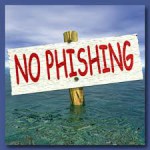How to Minimize the Risk of Identity Theft
What are the most causes of Identity Theft?
When someone obtains your personal information – name, address, phone numbers, e-mail address, birthdate, social security numbers, driver’s license, credit cards.
While it is impossible to totally eliminate the risk of identity theft, here are some helpful tips on how to minimize the risk.
What about the Equifax Data Breach?
Call each of the three major credit companies and freeze your credit file.
Equifax 800 685-1111 Experian 888 397-3742 TransUnion 888-909-8872
Income Tax Fraud
Do not send your social security number by text message or e-mail. Respond to IRS requests received by mail only. File early. Send all tax reports and checks by certified mail.
Shopping
Use only credit cards when shopping. Credit card charges can be challenged. Do not use debit cards. On the Internet, make sure that the site begins with https. Do not store credit card information with retailers. Remember the data breaches with well known retailers such as Target.
Traveling
Beware of free public wi-fi networks in hotels, coffee shops, airports, public parks, etc. Do not access sensitive sites such as your bank, financial institutions, and online purchasing sites requiring password information. I use a private internet access service which provides the privacy you need in these public places. CLICK HERE to read more about VPN services.
Protect Your Computer
Update all anti-virus and malware programs. Download and install program updates as requested. Ignore phone call warnings about your computers. Hang up immediately. Delete popups warnings about viruses from unknown sources. Delete e-mails from banks and shopping sites asking to update personal info. Never respond to any requests for personal information over the Internet. To learn more about “phishing,” CLICK HERE. I would avoid requests such as “please rate my site or performance and winning a trip.”
Mobile Phones.
Password protect your phone. Do not include lists of personal information or passwords on your mobile phone. Do not download mobile apps from unknown sources or third parties.
Do Not Call Registry
The Do Not Call Registry accepts registrations from both cell phones and land lines. To register by telephone, call 1-888-382-1222. You must call from the phone number that you want to register. To register online (donotcall.gov), you will have to respond to a confirmation email.
What to do if you are a victim of Identity Theft
Call your bank and cancel your ATM/debit card
Call your credit card companies and report your card has been stolen
Report your missing driver’s license to your local DMV and get a new one
File a police report
Call the three credit reporting agencies (Experian, Equifax, Transunion) and have a fraud alert placed on your account
Debt collectors – Tell them you are a victim and provide them with documentation
Tax time is almost upon us, and each year, I rebroadcast an interview I conducted on my radio show with Steve Weisman, a lawyer, college professor, author and one of the country’s leading experts in cybersecurity, identity theft and scams. His website, www.scamicide.com, is updated daily and is one of the most comprehensive sites in the field of cybersecurity,
Below is a link to my interview with Steve on the subject of income tax fraud.
HAVE YOU BEEN A VICTIM OF “PHISHING”?
 Have you responded to e-mails or text messages requesting personal information such as passwords, bank account information, credit cards, or social security numbers? Has your e-mail account been compromised or is your computer now infected with one or more viruses. If so, you have been victimized by one of the biggest Internet scams called “Phishing.”
Have you responded to e-mails or text messages requesting personal information such as passwords, bank account information, credit cards, or social security numbers? Has your e-mail account been compromised or is your computer now infected with one or more viruses. If so, you have been victimized by one of the biggest Internet scams called “Phishing.”
Wikipedia defines phishing as “an attempt to acquire information (and sometimes, indirectly, money) such as usernames, passwords, and credit card details by masquerading as a trustworthy entity in an electronic communication. Communications purporting to be from banks, popular social web sites, auction sites, online payment processors, etc. Phishing is typically carried out by e-mail spoofing or instant messaging and it often directs users to enter details at a fake website whose look and feel are almost identical to the legitimate one.”
Here are some tips on how to avoid phishing.
– Do not respond to any email with urgent requests for personal financial information.
– Avoid filling out forms in email messages that ask for personal financial information.
– Do not click on any links in an email, instant message, or chat that leads to a web page if you if you do not know the sender.
– Log in to your online accounts (banks, Ebay, Amazon, retailers) regularly and check for suspicious activity.
If you think you have been a victim of phishing, be sure to:
– Notify your bank if you have given out any credit card information. Cancel your account and open up a new one.
– Report the theft to the three major credit reporting agencies, Experian, Equifax and TransUnion Corporation, and request that they place a fraud alert and a victim’s statement in your file. Request a free copy of your credit report to determine whether any new accounts were opened without your consent.
– Change your passwords to your online accounts including your e-mail account.
– Make sure your anti-virus program is up-to-date and run a scan of your computer.
If you feel you have been a victim of phishing or your computer appears to be infected with a virus, do not hesitate to contact me at 917 921-4518 or by e-mail at jblue@bluetutor.com. Feel free to click here to receive my NEW white paper, “TIPS ON BECOMING A TRUE MOBILE WARRIOR”
